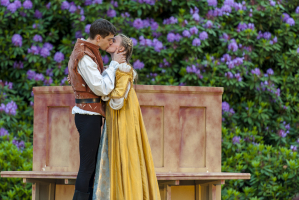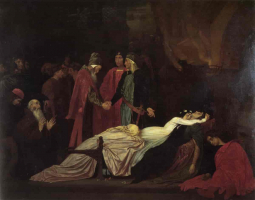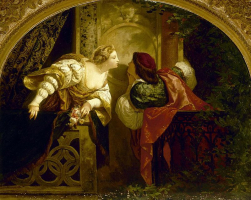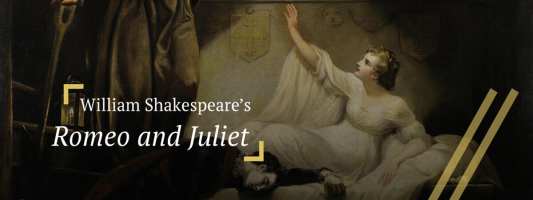Top 15 Common Questions about "Romeo and Juliet" and Answers
This comprehensive article explores the timeless tragedy of "Romeo and Juliet" through common questions and insightful answers. Find answers to some of the ... read more...most common questions about Shakespeare's famous play, from the complicated relationships between the feuding Capulets and Montagues to the rash choices the young loves make. Find out more about the people, the plot, and the society in which the story is set to understand this classic love story better.
-
Romeo and Juliet, a play by William Shakespeare, was written around 1594–96 and first published without authorization in 1597. An authorized version was published in 1599, which was longer and more reliable. Another edition, based on the second, was used for the First Folio of 1623. The characters, Romeo and Juliet, have inspired literature, music, dance, and theater. They are iconic as star-crossed lovers from feuding families, the Montagues and the Capulets.
Shakespeare drew inspiration from 'The Tragicall Historye of Romeus and Juliet' (1562), a narrative poem by English poet Arthur Brooke. Brooke, in turn, adapted the story from a French translation of a tale by the Italian Matteo Bandello.
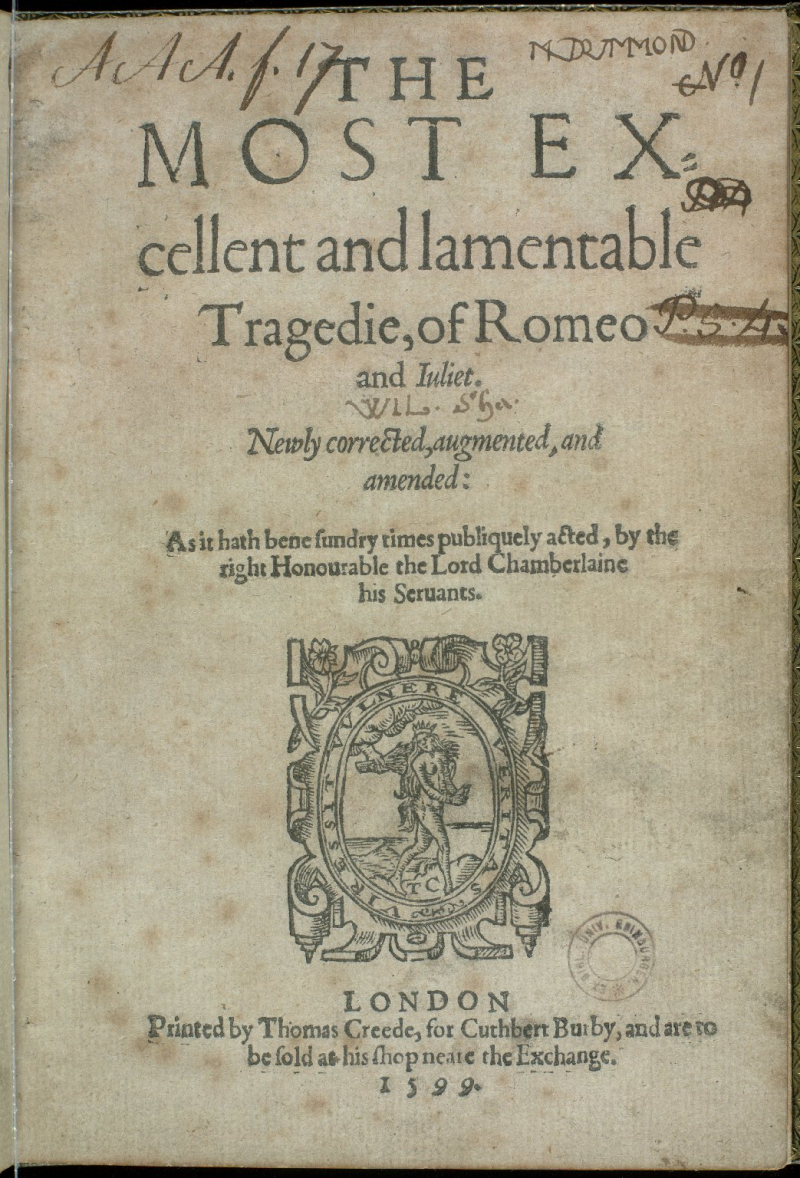
Photo on Wikimedia Commons 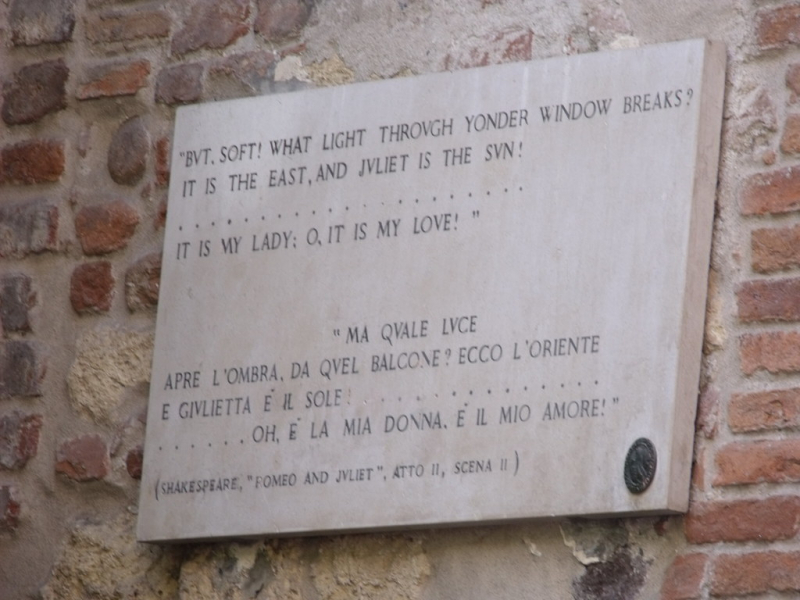
Photo on Flickr -
The setting for the play "Romeo and Juliet" by William Shakespeare is the city of Verona in Italy. Verona serves as the backdrop for the unfolding of the tragic love story between the two main characters, Romeo and Juliet. The play moves through various locations within Verona, including the houses of the Montagues and Capulets (the feuding families), the streets of the city, and Capulet's orchard, where Romeo and Juliet meet and profess their love. The setting plays a significant role in shaping the atmosphere and context of the events in the play.
In the romantic setting of Verona, Italy, Shakespeare introduces Juliet and Romeo, who meet and instantly fall in love at a masked Capulet ball. Despite their families' bitter rivalry, they secretly marry with the help of Friar Laurence. Trouble ensues when Tybalt, a Capulet, seeks revenge for Romeo's attention to Juliet, leading to a fatal confrontation with Romeo's friend, Mercutio. Fueled by a sense of honor, Romeo kills Tybalt, resulting in his banishment from Verona.
As Juliet's father arranges her marriage to Count Paris, unaware of her secret union with Romeo, she turns to Friar Laurence for help. He provides her with a potion that induces a death-like sleep, suggesting Romeo will rescue her. Romeo, uninformed due to a missed message, returns to Verona upon hearing of Juliet's apparent death. Finding her seemingly lifeless in the tomb, Romeo kills Paris in a confrontation and then himself with poison.
Juliet awakens to discover Romeo's death and takes her own life. The tragic events prompt the families to learn of their children's love, ending the long-standing feud.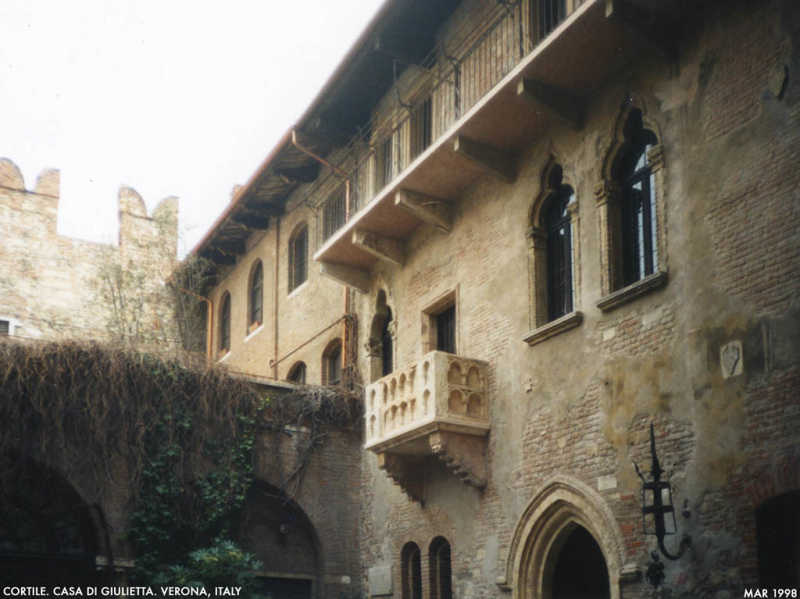
Photo on Flickr 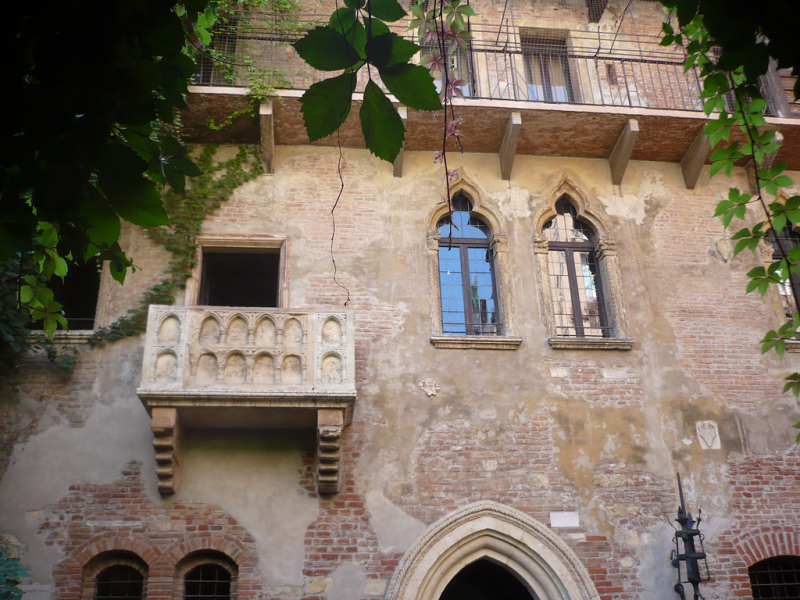
Photo on Flickr -
"Romeo and Juliet" is a tragedy play written by William Shakespeare. The play is one of Shakespeare's most famous works. It is categorized as a tragedy because it explores themes of love, conflict, and the inevitability of fate leading to a tragic conclusion.
The story follows the ill-fated love affair between two Italian youths from feuding families, Romeo and Juliet, culminating in their untimely deaths. Tragedies, in the context of literature, typically involve the downfall of the main characters, often due to a combination of their own flaws and external circumstances.
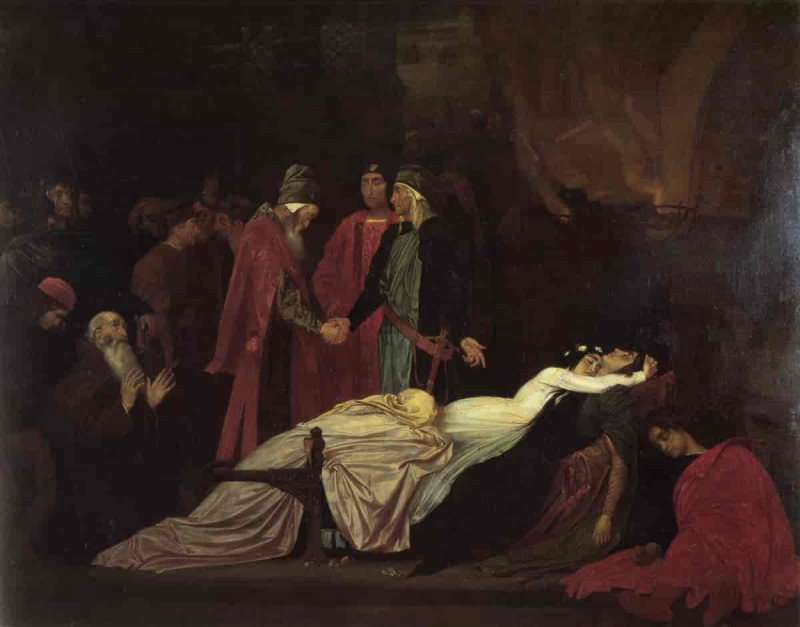
Photo on Store norske leksikon 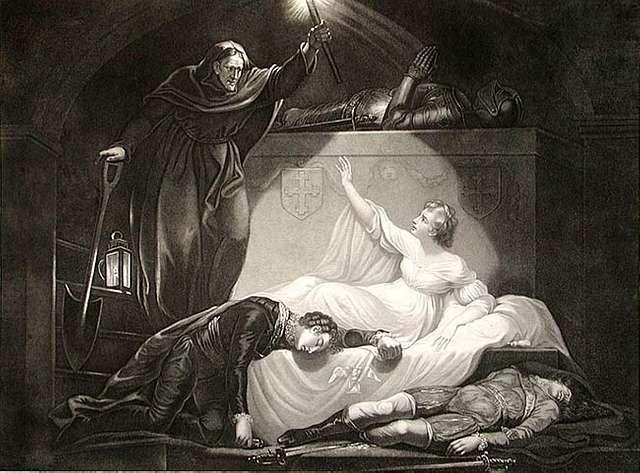
Photo on PICRYL -
In Act III, Scene V of Romeo and Juliet, the couple is together in Juliet's bed just before dawn, and though it's commonly inferred they may have been intimate, the text doesn't explicitly confirm it. The focus is on their reluctance to part ways after spending the night together.
In Catholic doctrine, a marriage is typically considered fully valid after consummation, involving the potential for conceiving children. The uncertainty of whether Romeo and Juliet consummated their marriage adds a layer of complexity, as an unconsummated marriage could be annulled by their parents.
The dialogue between the lovers revolves around the intensity of their feelings in the moment, with Juliet longing for more time together and Romeo expressing a willingness to face death rather than leave. This scene is reminiscent of an aubade, a poetic form where lovers lament the necessity of parting before dawn, even though their situation is not adulterous, unlike the traditional context of an aubade.
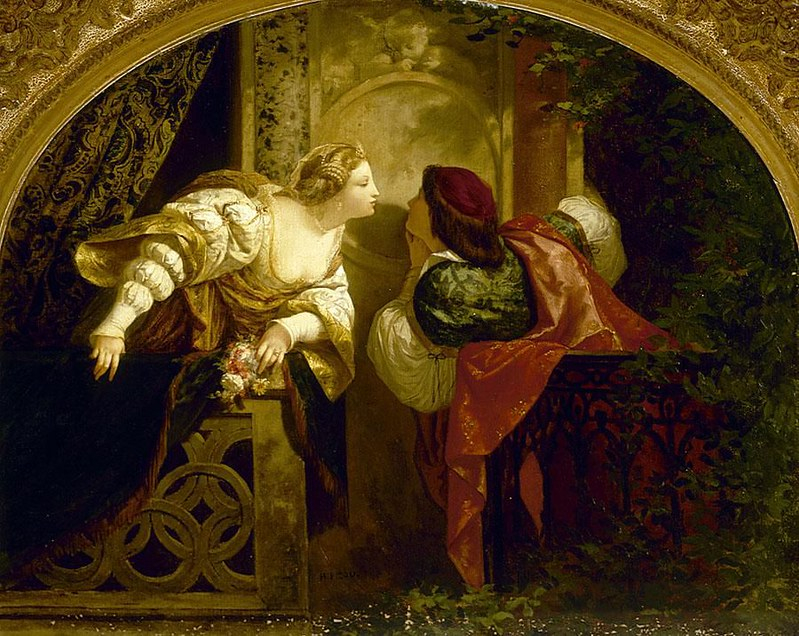
Photo on Flickr 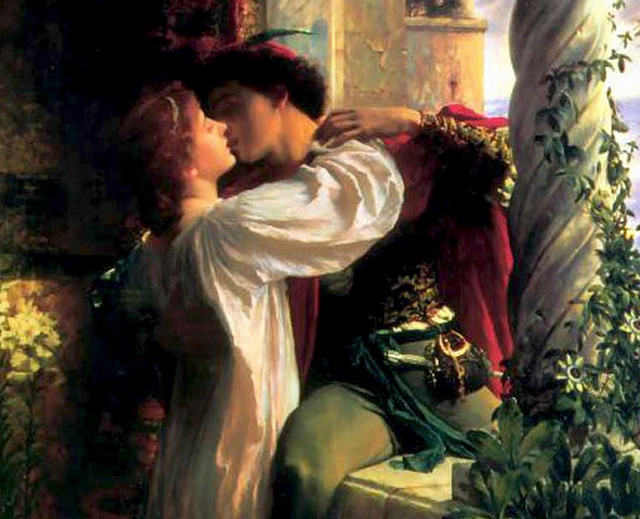
Photo on PICRYL -
At the start of Romeo and Juliet, Romeo is lovesick over a woman who doesn't share his feelings. Though he doesn't name her initially, later, Benvolio reveals her identity as Rosaline, a Capulet. Romeo learns that Rosaline will be at the Capulet ball, and Benvolio suggests he attend to find someone new. Although Rosaline never appears on stage, her rejection prompts Romeo to attend the ball, setting the stage for his life-changing meeting with Juliet.
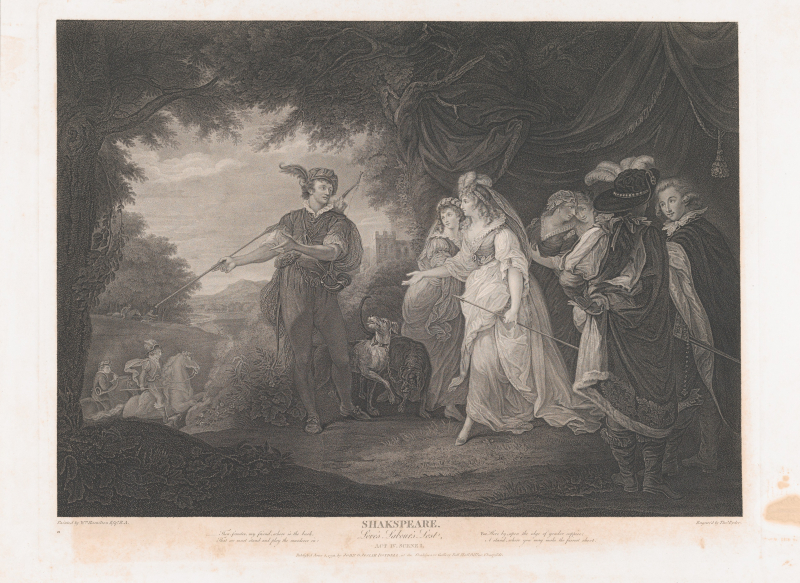
Photo on Wikimedia Commons 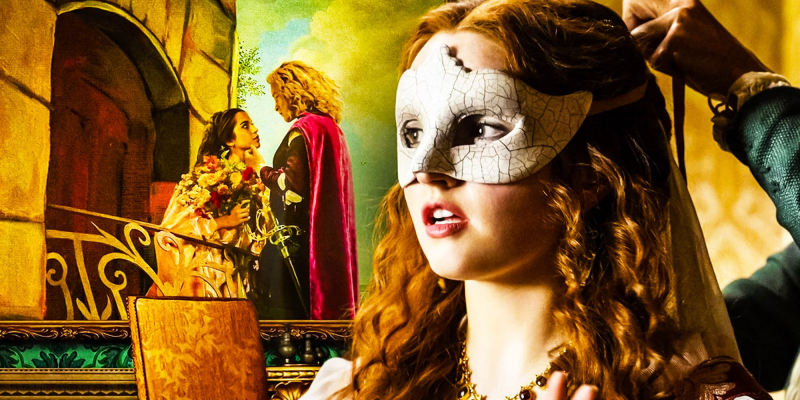
Photo on Screen Rant -
Act III, scene I: Romeo is called a "villain" by Tybalt, who is itching for a battle. Romeo, however, who now views Tybalt as kin after secretly marrying Juliet, turns the other cheek. Romeo dismisses the insult and replies to Tybalt's cruel behavior with cool, albeit mysterious, words of love:
I do protest I never injured thee,
But love thee better than thou canst devise
Till thou shalt know the reason of my love. (III.i.65–67)Tybalt's remarks enrage Mercutio, Romeo's close friend, who dares him to a duel instead. Mercutio sees Romeo's kindness and his refusal to fight Tybalt as "dishonorable, vile submission" (III.i.70). Angered by his friend's seeming lack of dignity, Mercutio intervenes to protect Romeo's standing.
Unfortunately, this confrontation leads to a terrible chain of events in which Mercutio is severely injured by Tybalt. After Mercutio's death, the rivalry between the Capulets and Montagues grows stronger, ultimately affecting the play's tragic conclusion.
It is noteworthy that, despite being forbidden, dueling was popular in Shakespeare's England. Young men, especially those of the aristocratic class, felt compelled to defend their honor and the honor of their friends and relatives against any insults. Because of this obsession with honor, small insults might easily escalate into deadly fights. According to Lawrence Stone, a well-known early modern English historian, "tempers were short and weapons were easy to hand."
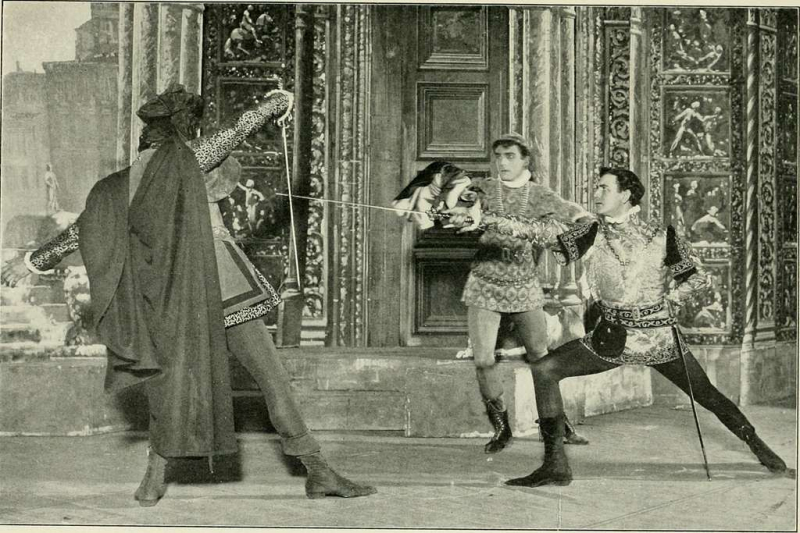
Photo on PICRYL 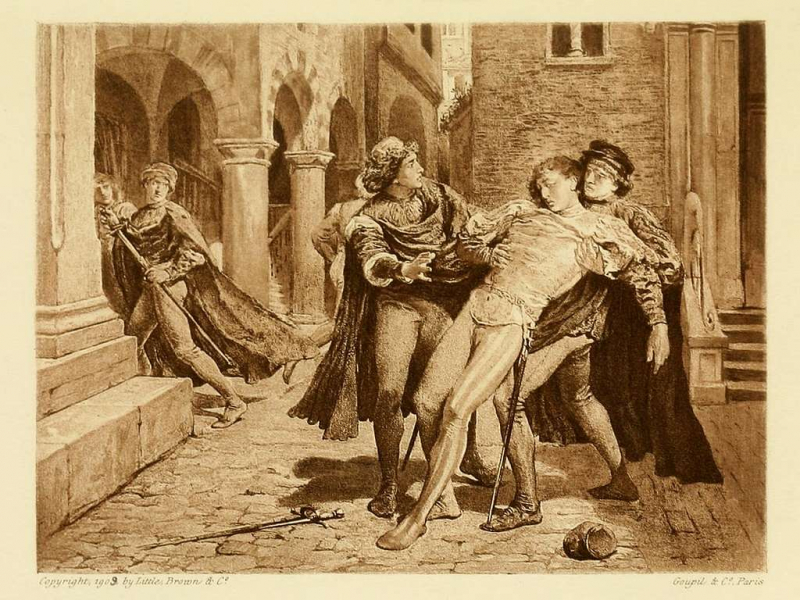
Photo on PICRYL -
When Romeo knocks on his door and asks, "A dram of poison" (V.i.60), the Apothecary refuses, stating that he could be executed for selling lethal poisons. "Such mortal drugs I have," the Apothecary says to Romeo, "but Mantua's law / Is death to any he that utters them" (V.i.66-67). Romeo reacts by remarking on the Apothecary's thin and despondent appearance, and he wonders why the man could fear death or protect the law when he himself appears to be so bleak:
Art thou so bare and full of wretchedness,
And fearest to die? Famine is in thy cheeks;
Need and oppression starveth in thy eyes;
Contempt and beggary hangs upon thy back.
The world is not thy friend, nor the world’s law.
The world affords no law to make thee rich. (V.i.68–73)Romeo argues that the law prohibiting the sale of poison hinders the Apothecary from making a living. Using wordplay on "afford," meaning both "able to pay" and "able to offer," Romeo suggests that, just as the Apothecary can't afford to live well, the law doesn't afford him a decent life. To break free from this dilemma, the Apothecary must reject the law. Romeo appeals to the Apothecary's survival instincts, and begrudgingly, the Apothecary agrees to take Romeo's money, stating, "My poverty, but not my will, consents" (V.i.75).
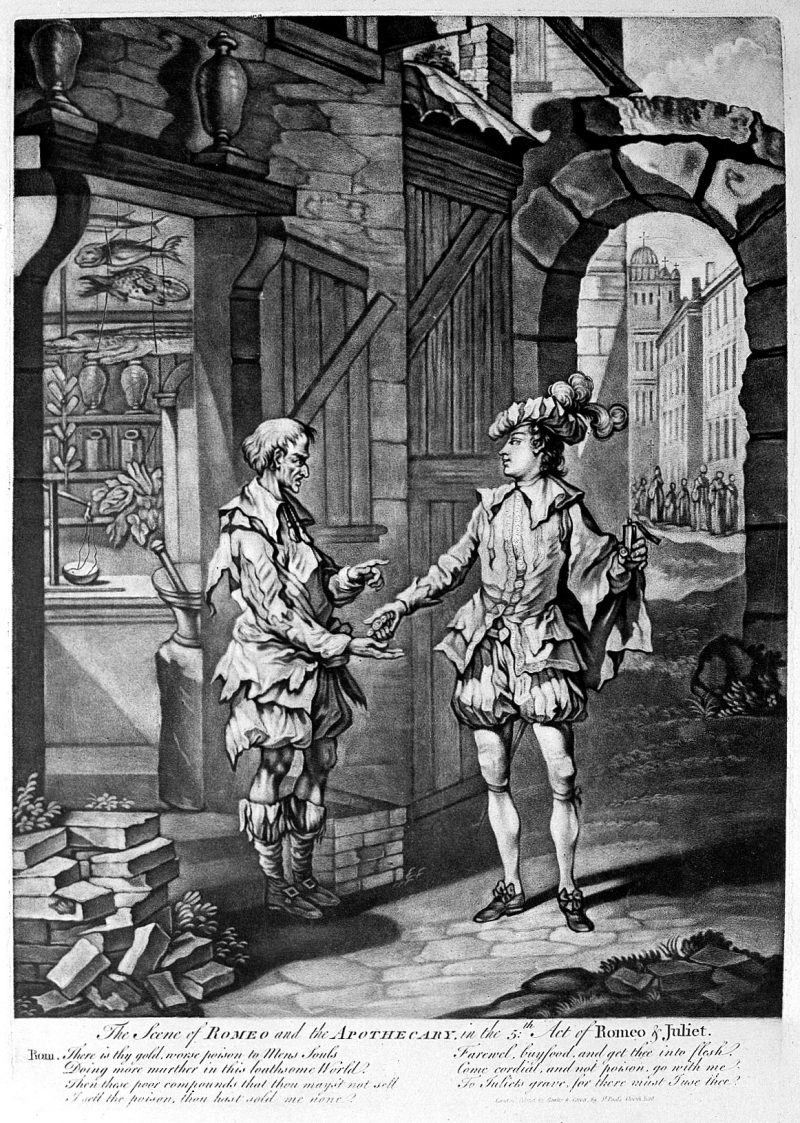
Photo on Wikimedia Commons 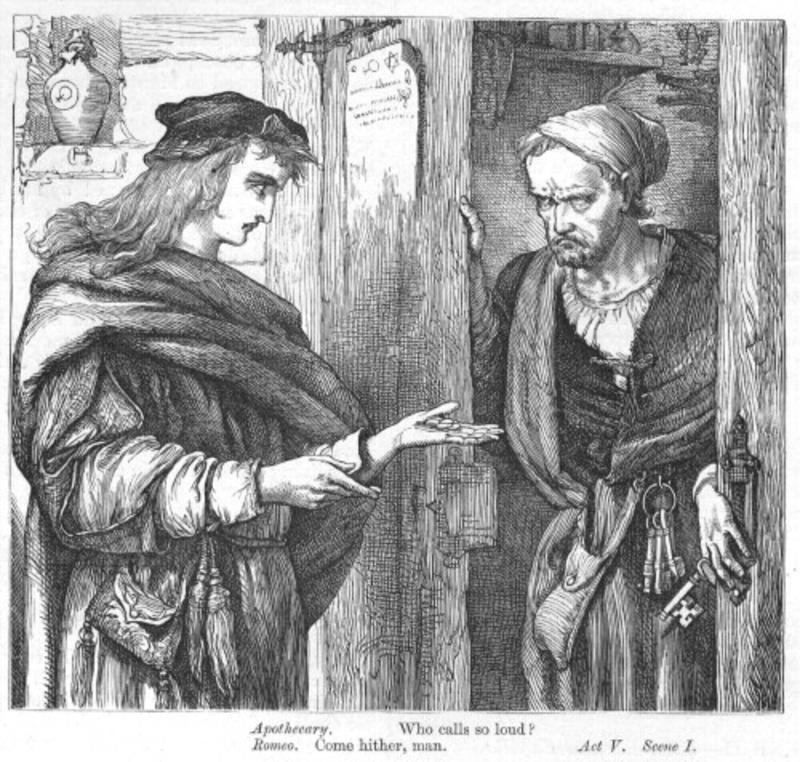
Photo on UWSSLEC LibGuides -
Romeo, Mercutio, and Benvolio attend the Capulets' party in Shakespeare's "Romeo and Juliet" for various reasons. Initially, they decide to go to the party because Romeo wants to see Rosaline, whom he is infatuated with at the time.
In an attempt to assist Romeo in letting go of his fixation on Rosaline, Benvolio states that Romeo will have the opportunity to compare Rosaline to other girls at the party and come to the realization that she is not the most attractive. Despite Benvolio's suggestion that attending the party might help Romeo move on from his unrequited love for Rosaline, Romeo decides to go in the hopes of seeing Rosaline and perhaps finding a new object of affection.
However, the decision to attend the party becomes a crucial turning point in the play when Romeo and Juliet meet and fall in love at the Capulet's celebration. The encounter sets off a series of events that lead to the tragic fate of the two young lovers and intensifies the longstanding feud between the Capulets and the Montagues.
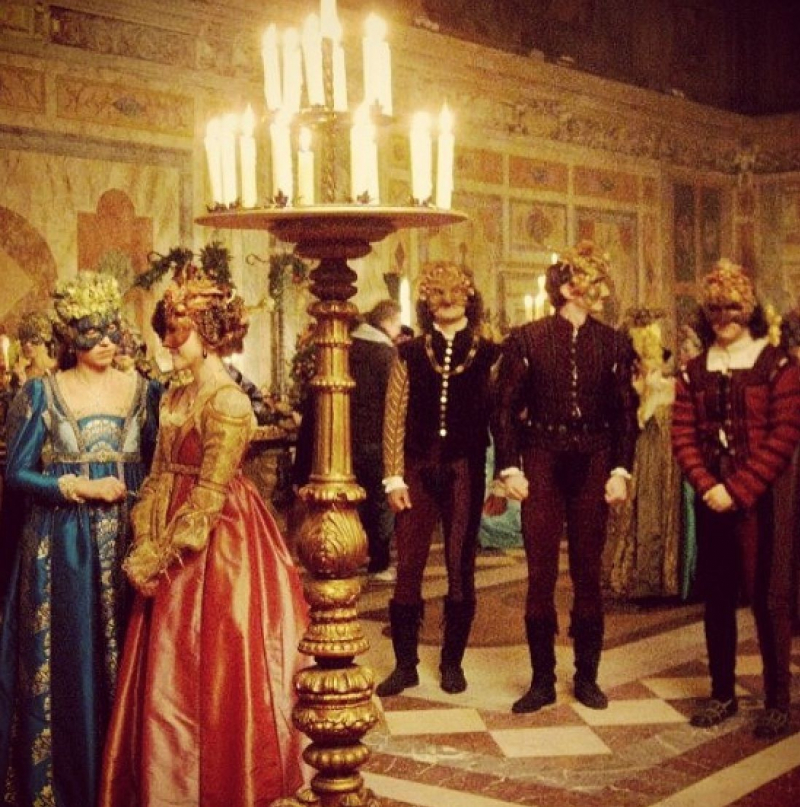
Photo on Pinterest Video via Movieclips -
In Shakespeare's "Romeo and Juliet," Juliet is often portrayed as more realistic and less impulsive than Romeo. While both characters are young and passionate, Juliet tends to approach situations with more practicality and thoughtfulness.
For instance, when Romeo suggests marriage shortly after meeting her at the Capulet's party, Juliet is cautious and insists on knowing more about his intentions before committing. She displays a level-headedness in dealing with the complexities of their situation, especially considering the feud between their families.
On the other hand, Romeo is impulsive and driven by his intense emotions. His impetuous nature is evident in his quick decision-making, such as his impulsive pursuit of Juliet, his secret marriage to her, and the duel with Tybalt that ultimately leads to Mercutio's death.
While both characters exhibit impulsive behavior at times, Juliet is often depicted as more pragmatic and realistic, considering the challenges they face in a world dominated by family conflicts.
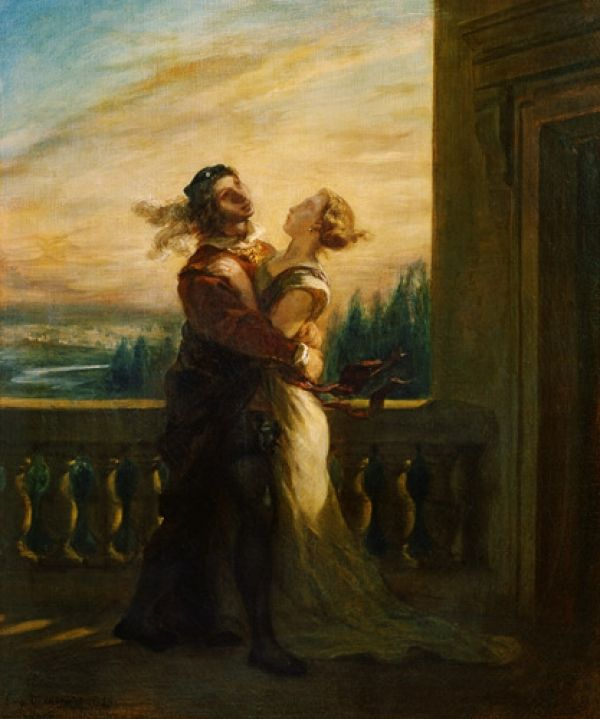
Photo on Wikimedia Commons 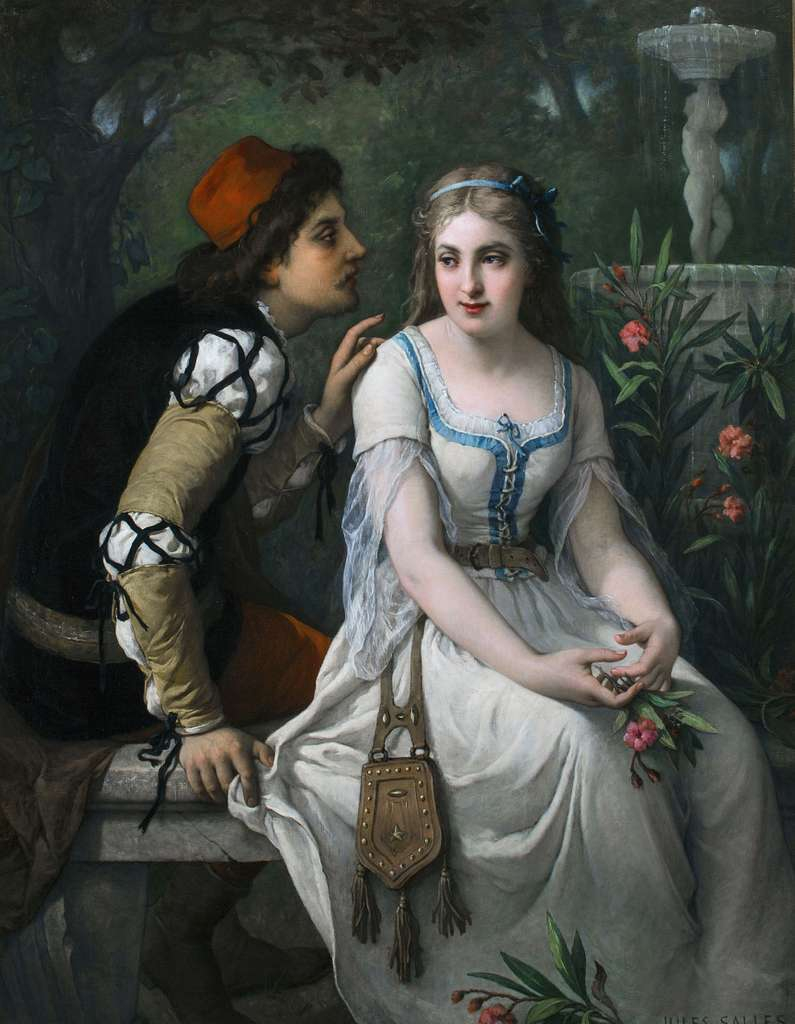
Photo on Collections - GetArchive -
Friar Lawrence agrees to marry Romeo and Juliet for a combination of reasons. One primary motivation is his hope that the union between the two young lovers might help to reconcile the longstanding feud between the Montagues and the Capulets. Friar Lawrence believes that the marriage could be a catalyst for peace and harmony between the two warring families. “For this alliance may so happy prove / To turn your households’ rancor to pure love,” he says (2.3.91–92).
When Juliet arrives, Friar Lawrence wants to marry them as soon as possible since their love makes him afraid they will make love if left alone: "[Y]ou shall not stay alone / Till holy church incorporate two in one" (2.6.36-37).
Additionally, Friar Lawrence is motivated by his genuine affection for Romeo. He hopes that marrying Romeo to Juliet will redirect Romeo's infatuation away from Rosaline, which has been a source of concern for the Friar. He sees the potential for Romeo's feelings to shift towards a more stable and reciprocal love with Juliet.
Friar Lawrence, however, underestimates the complexities and consequences of this decision, and the secret marriage ultimately sets in motion a series of tragic events leading to the untimely demise of the young lovers.
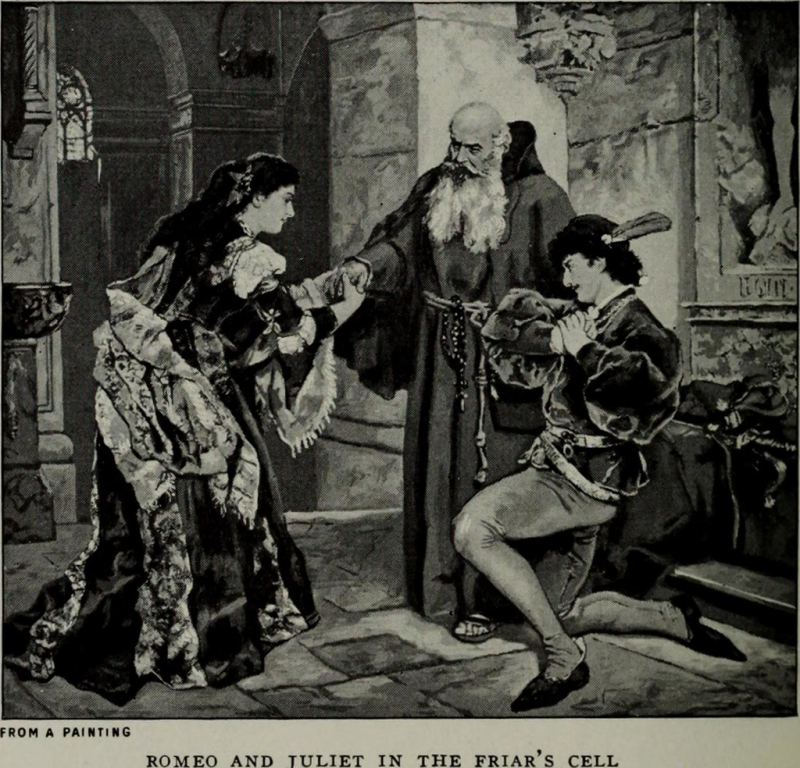
Photo on Flickr 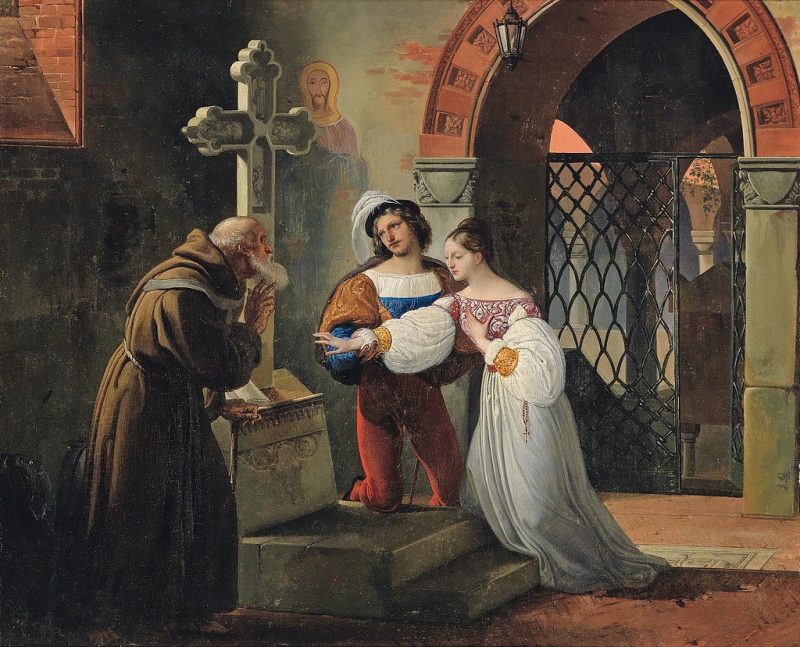
Photo on Flickr -
When Mercutio utters the famous line "a plague o' both your houses" in Shakespeare's "Romeo and Juliet," he is expressing his frustration and anger at both the Capulet and Montague families. Mercutio is mortally wounded in a brawl between Tybalt (a Capulet) and Romeo (a Montague). As he lies dying, Mercutio condemns the two feuding households, blaming their ongoing conflict for his imminent death.
This statement is a curse, a wish for misfortune or calamity upon both the Capulet and Montague families. Mercutio's words highlight the tragic consequences of the ancient grudge between the two houses, and his death becomes a turning point in the play, intensifying the animosity and leading to the tragic fate of Romeo and Juliet.
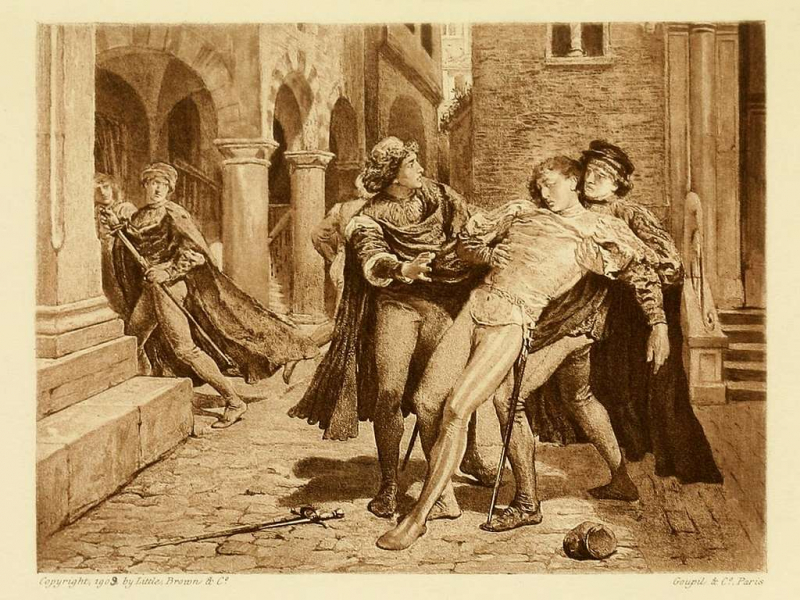
Photo on PICRYL 
Photo on PICRYL -
Romeo fights Tybalt because Tybalt, Juliet's cousin, has killed Romeo's close friend, Mercutio. The sequence of events leading to this duel is crucial to understanding the conflict in the play.
In Act III, Scene I, Tybalt confronts Romeo, who initially refuses to fight because he has just married Juliet and considers Tybalt family. However, Mercutio, loyal to Romeo, intervenes and fights Tybalt in Romeo's stead. During the scuffle, Mercutio is mortally wounded. Consumed by anger and grief over his friend's death, Romeo avenges Mercutio by engaging Tybalt in a duel, ultimately killing him.
This tragic turn of events accelerates the downward spiral of the play, leading to the eventual deaths of Romeo and Juliet and further escalating the feud between the Capulet and Montague families.
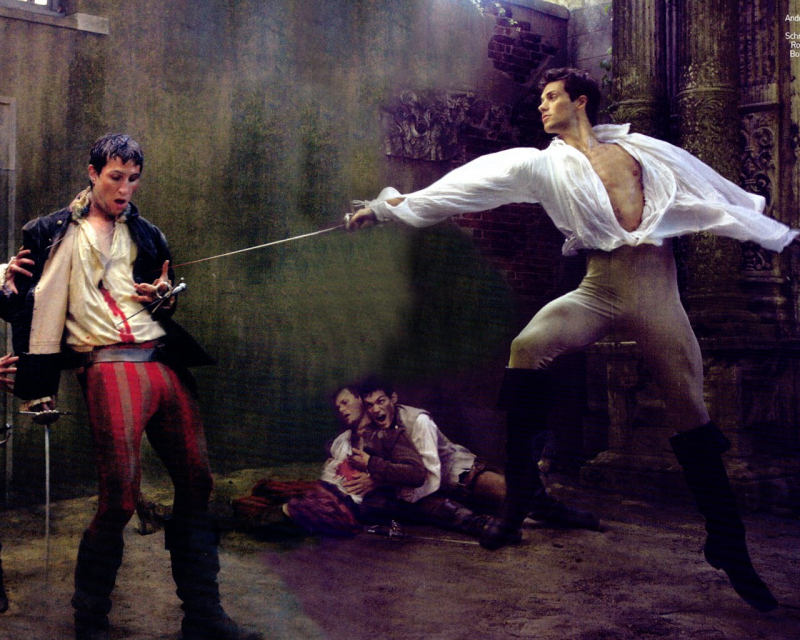
Romeo & Juliet - WordPress.com Video via Grocker2011 -
In "Romeo and Juliet," there isn't a clear-cut villain in the traditional sense. The tragedy unfolds due to a combination of fate, misunderstandings, and the longstanding feud between the Capulet and Montague families. While certain characters make choices that contribute to the tragic outcome, labeling any one individual as a villain oversimplifies the complex dynamics at play. Romeo and Juliet's deaths could be attributed to Veronese society, which placed a strong emphasis on family loyalty and feuding.
Tybalt, Juliet's cousin, is often seen as a hot-headed and aggressive character, and his actions, including the killing of Mercutio, contribute to the escalating conflict. However, it's essential to recognize that the characters are shaped by the broader societal and familial context in which they exist.
The tragedy of "Romeo and Juliet" is more about the destructive consequences of hate, prejudice, and impulsive actions than the actions of a singular villain. The play explores the destructive impact of the feud and the powerlessness of the young lovers caught in its midst.
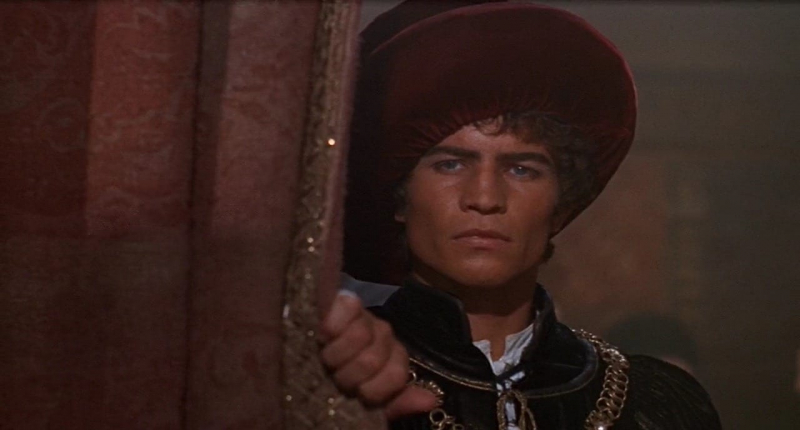
Photo on No Sweat Shakespeare 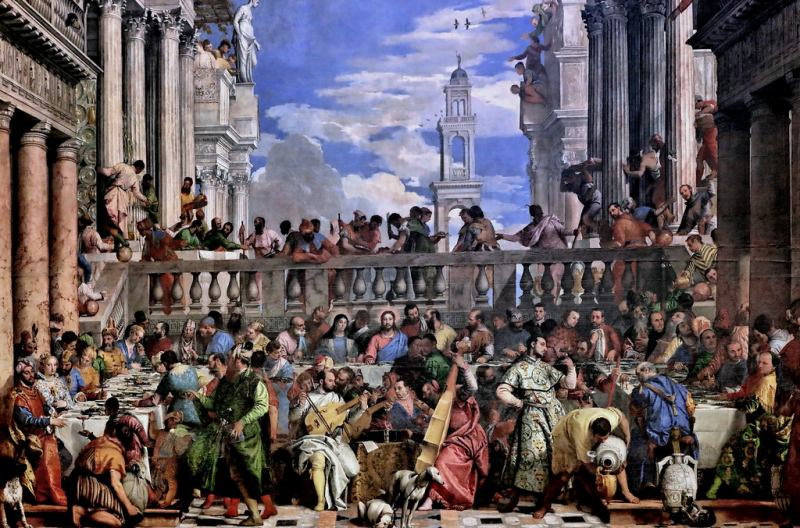
Photo on Flickr -
In Verona society, a murderer would typically be executed by hanging. Romeo's father Montague says, "His fault concludes but what the law should end, / The life of Tybalt," (3.1.181–182) hoping that the Prince will realize that Romeo killed Tybalt for killing Mercutio. The Prince seems to agree in part when, rather than putting Romeo to death for killing Tybalt, he just exiles him.
In Act III, Scene I, the Prince states:
"And for that offence
Immediately we do exile him hence.
I have an interest in your hate’s proceeding,
My blood for your rude brawls doth lie a-bleeding;
But I’ll amerce you with so strong a fine
That you shall all repent the loss of mine.
I will be deaf to pleading and excuses.
Nor tears nor prayers shall purchase out abuses.
Therefore use none. Let Romeo hence in haste.
Else, when he’s found, that hour is his last." (III.1.184–191)The Prince, in an attempt to maintain order and curb the violence in Verona, chooses the punishment of exile for Romeo instead of death. This decision sets the stage for the subsequent events in the play, leading to further misunderstandings and tragic consequences.
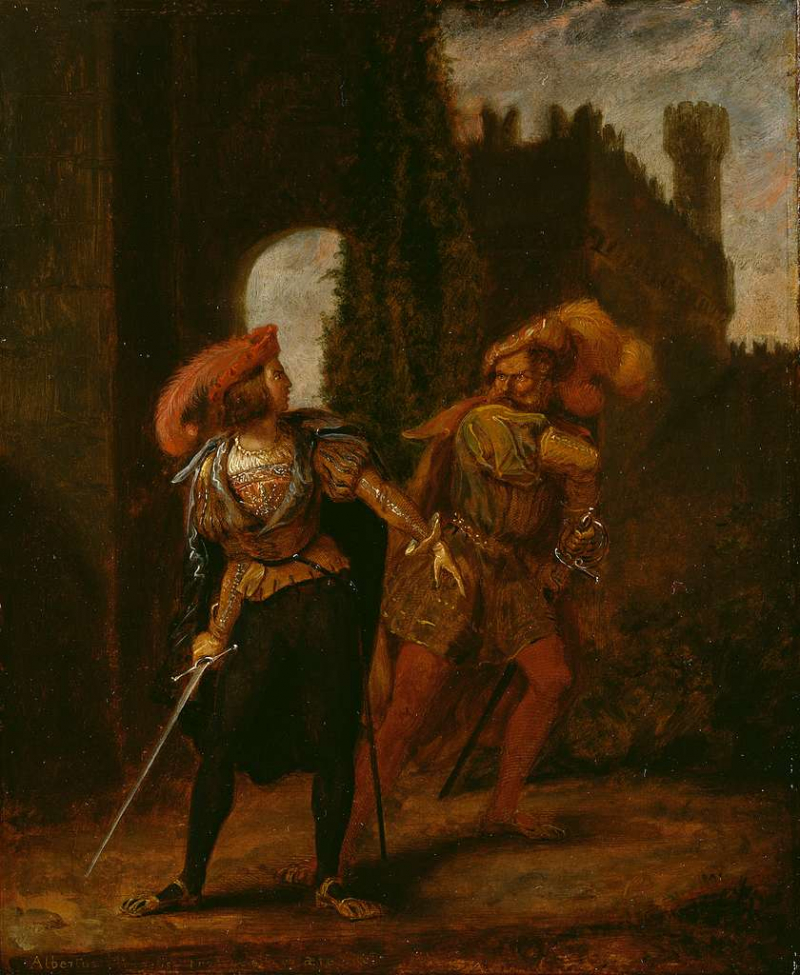
Photo on PICRYL 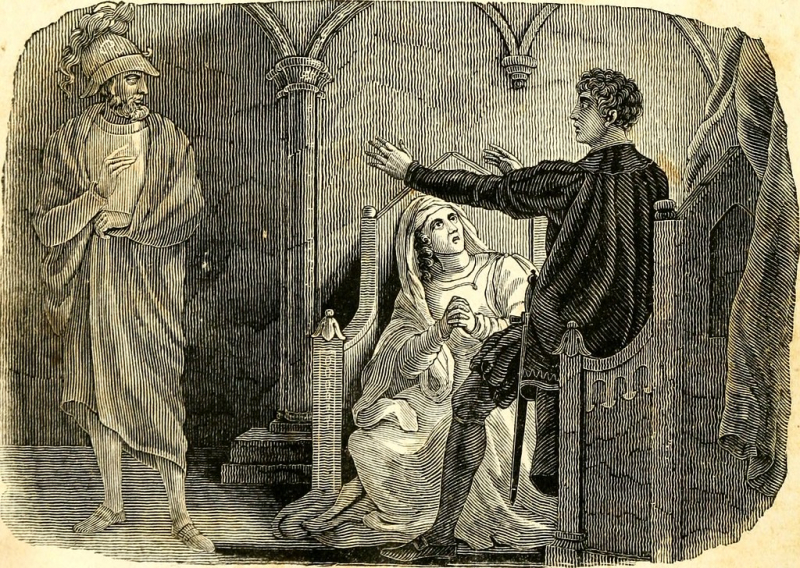
Photo on Flickr -
Friar Lawrence's attempts to reunite Romeo and Juliet go awry due to unfortunate events and miscommunications. The primary elements that contributed to the failure of his plan include:
The Miscommunication about Juliet's Fake Death:
- Friar Lawrence devises a plan involving a sleeping potion for Juliet to simulate her death temporarily. He intends for Romeo to be informed of this plan and to reunite with Juliet when she awakens.
- Unfortunately, a message conveying the details of the plan doesn't reach Romeo in time. Instead, Romeo hears about Juliet's death and believes it is true.
Romeo's Impulsive Reaction:
- Fueled by grief and despair over Juliet's apparent death, Romeo rushes back to Verona without verifying the situation. His impulsive actions lead to tragic consequences.
Romeo's Unawareness of the Plan:
- Friar John, the messenger entrusted with delivering Friar Lawrence's letter to Romeo, is unable to do so because he gets quarantined due to a suspected outbreak of the plague. As a result, Romeo remains unaware of the plan.
Ultimately, these factors converge to prevent Romeo and Juliet from being reunited as Friar Lawrence intended, leading to the tragic conclusion of the play.

Photo on Flickr 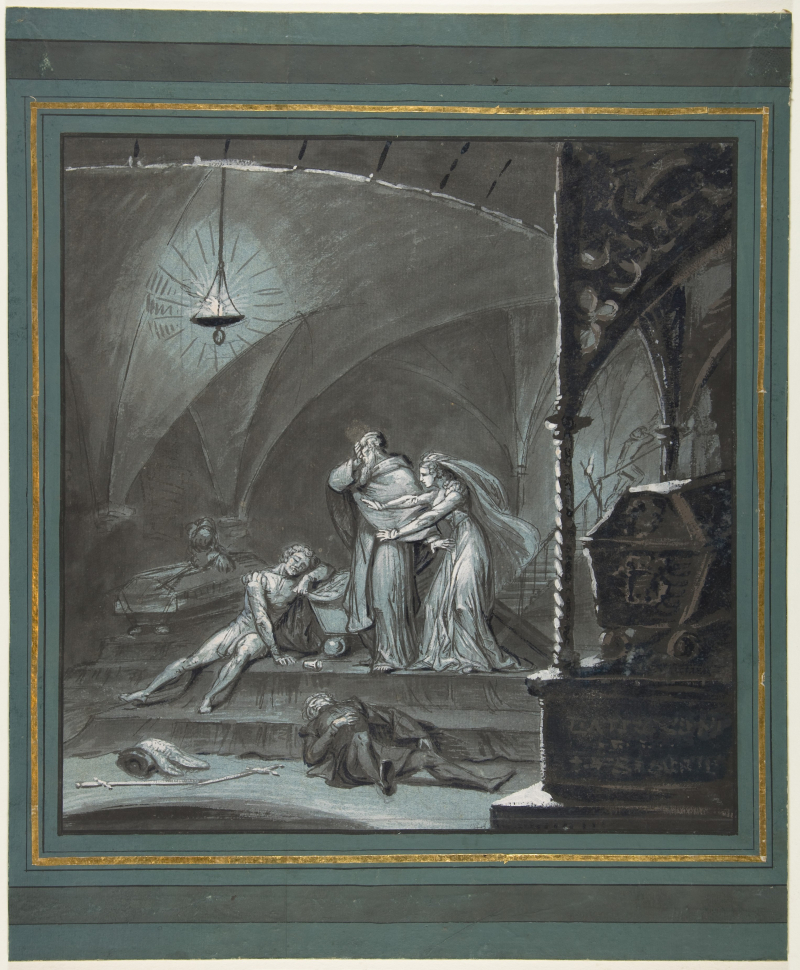
Photo on Wikimedia Commons

















